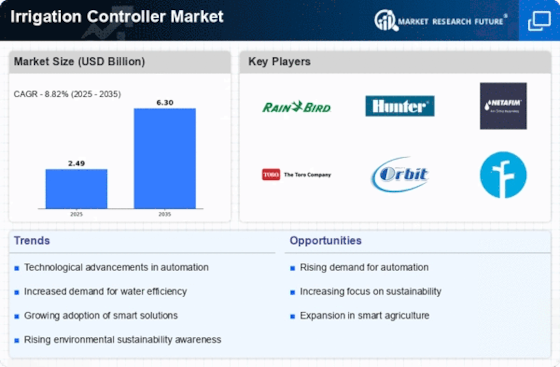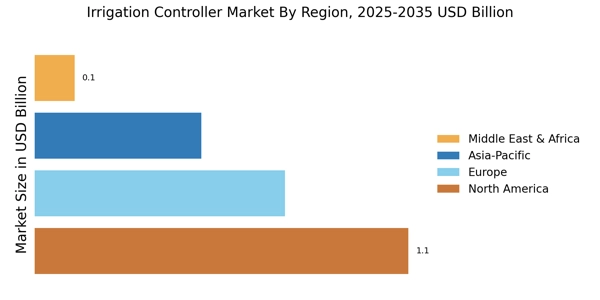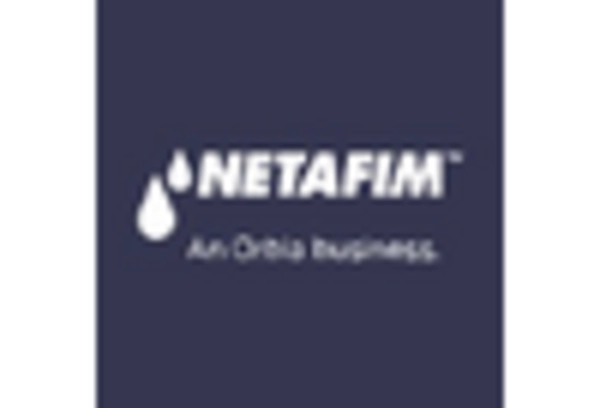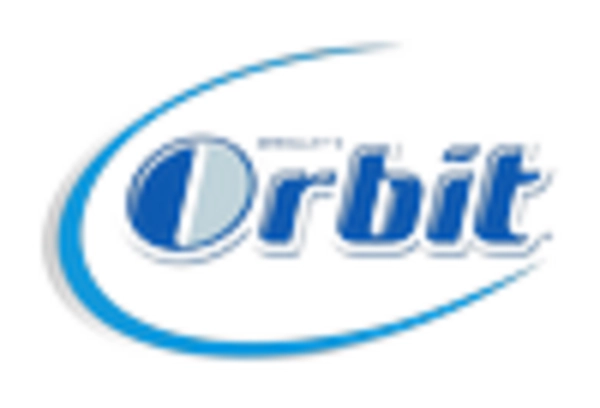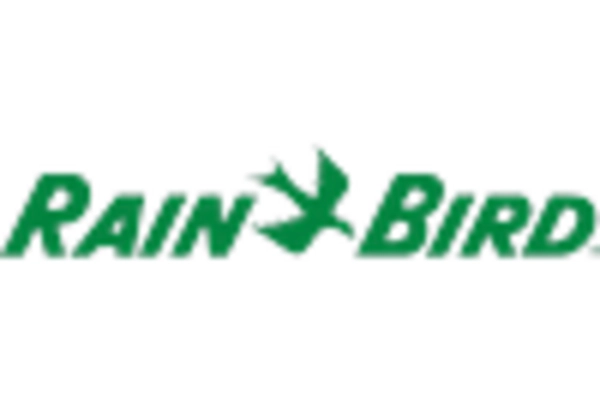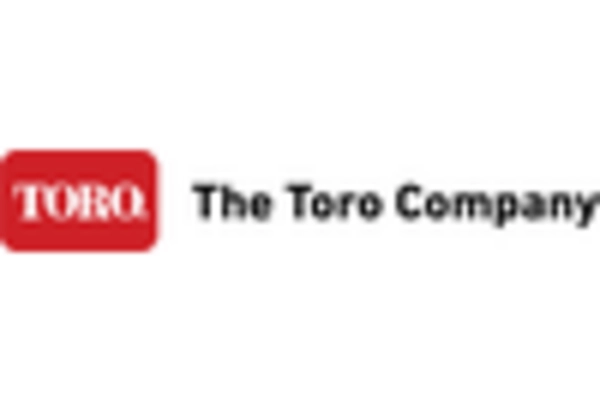Growing Awareness of Water Scarcity
The rising awareness of water scarcity issues is significantly influencing the irrigation controller Market. As drought conditions become more prevalent, stakeholders in agriculture are recognizing the necessity of efficient water management practices. This awareness is leading to a greater demand for irrigation controllers that can optimize water usage. Market data indicates that regions facing severe water shortages are likely to see a 30% increase in the adoption of advanced irrigation technologies over the next few years. Consequently, the Irrigation Controller Market is expected to expand as farmers and agricultural businesses seek solutions that address these pressing challenges.
Government Regulations and Incentives
Government regulations aimed at promoting water conservation are playing a pivotal role in shaping the Irrigation Controller Market. Many countries are implementing policies that encourage the adoption of efficient irrigation technologies. For instance, financial incentives for farmers who invest in modern irrigation systems are becoming increasingly common. This regulatory environment not only fosters innovation but also drives market growth, as compliance with these regulations becomes essential for agricultural sustainability. The Irrigation Controller Market is thus positioned to benefit from these initiatives, with an expected increase in market size as more farmers transition to compliant systems that utilize advanced irrigation controllers.
Integration of Climate-Smart Practices
The integration of climate-smart agricultural practices is emerging as a significant driver in the Irrigation Controller Market. As climate change impacts become more pronounced, farmers are adopting strategies that enhance resilience and sustainability. Irrigation controllers that support these practices are gaining traction, as they allow for adaptive management of water resources. Market analysis reveals that the demand for climate-smart irrigation solutions is expected to rise by 40% in the coming years. This shift not only reflects a growing commitment to sustainable agriculture but also positions the Irrigation Controller Market as a key player in the transition towards more environmentally responsible farming practices.
Increased Agricultural Productivity Demands
The demand for increased agricultural productivity is a critical driver in the Irrigation Controller Market. As the global population continues to grow, the pressure on food production systems intensifies. Farmers are increasingly turning to advanced irrigation controllers to enhance crop yields and ensure efficient water use. Recent studies suggest that the implementation of smart irrigation systems can lead to yield improvements of up to 20%. This trend indicates a strong market potential for irrigation controllers that can deliver precise water application tailored to crop needs. The Irrigation Controller Market is thus poised for growth as agricultural stakeholders seek innovative solutions to meet these productivity demands.
Technological Advancements in Irrigation Controllers
The Irrigation Controller Market is experiencing a surge in technological advancements, particularly with the integration of IoT and AI. These innovations enable real-time monitoring and data analytics, allowing for more precise water management. According to recent data, the adoption of smart irrigation systems is projected to increase by 25% over the next five years. This trend is driven by the need for efficient water usage in agriculture, which is crucial given the rising global population and the corresponding demand for food production. As farmers seek to optimize their resources, the Irrigation Controller Market is likely to see a significant shift towards automated and intelligent systems that enhance productivity while conserving water.


